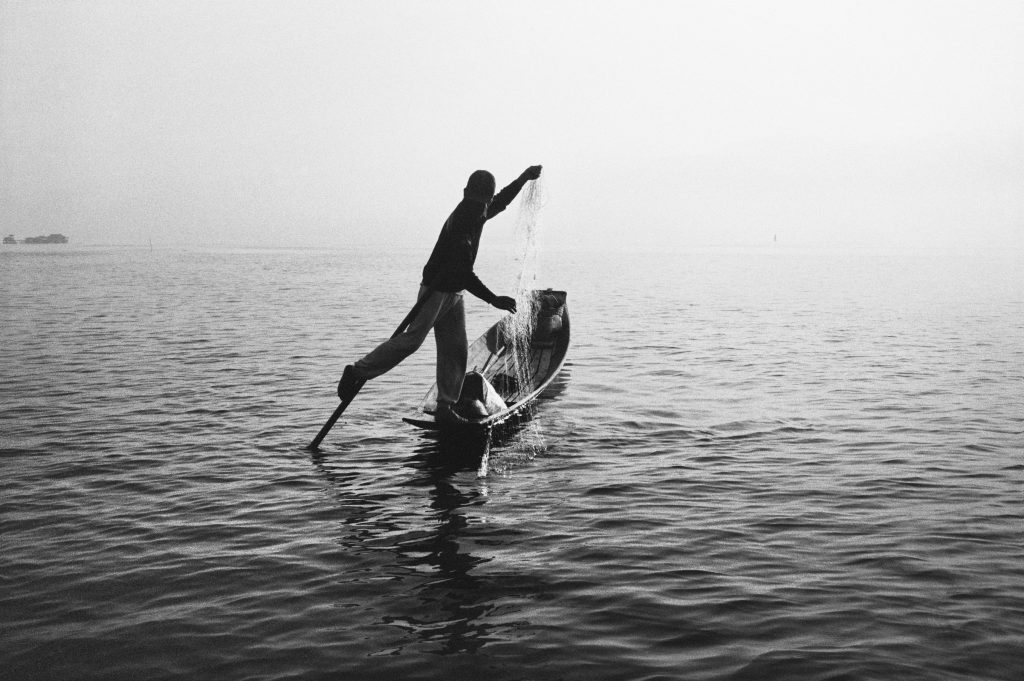It is a school for the children with no tongues who were born to tongueless mothers. The school teaches only one subject: patience. “Patience is the greatest virtue in life,” say the fathers who can speak.

February 25, 2020
When my grandparents moved to the city, they walked a dirt road that stretched for over a thousand miles. The road smelled of gunpowder and smoke. When it was time for lunch, they sat down and stared at each other until wildflowers sprang up from their eyes. They ate the flowers and continued their journey. Bandits and militias awaited them on their way; my grandparents had to leave their belongings one piece at a time. By the time they got to the city, there were no clothes left on their bodies.
My mother is afraid of fire. She has seen villages completely devoured as if they never existed before. She thinks fire has the face of a daydreamer. She often says fire is both soft as cotton and brutal as a tyrant. Every morning, she offers yellow flowers at the shrine, praying the fire leaves her family alone. There was this one time when my father told her about a Vietnamese monk. The monk burned himself to death on the streets of Saigon protesting against the persecution of the Buddhist monks by the government. My mother listened to the story and cried, her tears glistening like salt in the sun.
After my family moved to the city, one of my uncles visited from a rural town to see us. Upon arriving at our house, he went up the rain tree in our yard instead of coming inside. When I looked up at him, I could only see parts of him between the leaves. My mother needed to shout to have a conversation with him. At night lying in my bed, I heard him singing. His songs were about paddies, rivers, and his dead dog whose ghost came back to see him. My uncle stayed in the tree for a week and went back home.
The tall man in ragged clothes was ordering other men to slit the throat of the policeman. He shouted, “This pig has been sucking our blood for a long time!” Other men did as he said. I was an eight-year-old boy when this happened. But I saw the tall man in ragged clothes again after some years. This time I saw him in a painting in a museum. He was taking a picnic with his family in the shade of a large tree.
Feathers drop from the night sky. The city is trembling with insomnia. The lights go out and street dogs go blind in the dark. I am sitting in my room, listening to the forest in the next room talking to the rabbits that burrow under my bed. Children go out on the streets and collect the feathers. On the flipside of the city, birds preen their feathers on the edge of a moon-shaped pool.
With the night falling, they come into the city. They sleep beside women and they are not the husbands; do surgeries on men and they are not surgeons; bury children in the riverbed and they are not the parents. They dig up earth and demolish old buildings and they are not gravediggers or construction workers. They have flowerpot heads and are not attacked by stray dogs. We follow them and make a list of things they carry. They carry moons, powdered skulls, food cans, shrapnel wounds of rainbows, bankers, oil tankers. They never leave the city again.
He came into my living room when I was watching TV. He went to the fridge and took some bananas. He slept on my couch. The next morning, I had to clean up the couch covered with scales, his scales, with rainbow colors. The entire place was riddled with them – the kitchen, the bathroom, the backyard. And there’s no sign of him leaving yet. I told him I didn’t know him and I didn’t want him to stay. He said it was totally normal to walk into any house and stay as a guest. Before he finally left, he told me to treat the next guest kindly.
It is a school for the children with no tongues who were born to tongueless mothers. The school teaches only one subject: patience. “Patience is the greatest virtue in life,” say the fathers who can speak. If the children want to express their feelings to their fathers, they must speak through birds given to them on the first day of school. But these birds are not the talking animals like those from children’s stories. They relay the feelings of their young masters by making various noises.
One child who starts going to school receives a sparrow from his father. This bird is different from the others. It grows so fast and so large that within a week it becomes the size of a house. The first time it makes noises to relay the boy’s feelings to his father, it is so loud the father goes deaf.
A boy has scabs that itch and ache. There are cities in his scabs – cities filled with people, supermarkets, pets, automobiles. In one of the cities where there is night in some parts and morning in others, where summer and winter come simultaneously, the boy’s mother lives. Every day, she goes around looking for him, shouting his name. But she will never find him.
A madman builds a town in his head, and a boy goes to school in that town. The boy who has blinking fairy lights for eyes and an exhaust pipe emitting pink smoke for a mouth meets a girl and falls for her instantly. There is a tree in the boy’s head, and birds resting on its branches are his dreams. His friends shoot the birds down with slingshots, his parents cut down the tree with a chainsaw and the girl doesn’t love him back. One night the boy sneaks out and burns down the school. The flames snap at the night sky with their exquisite teeth.



